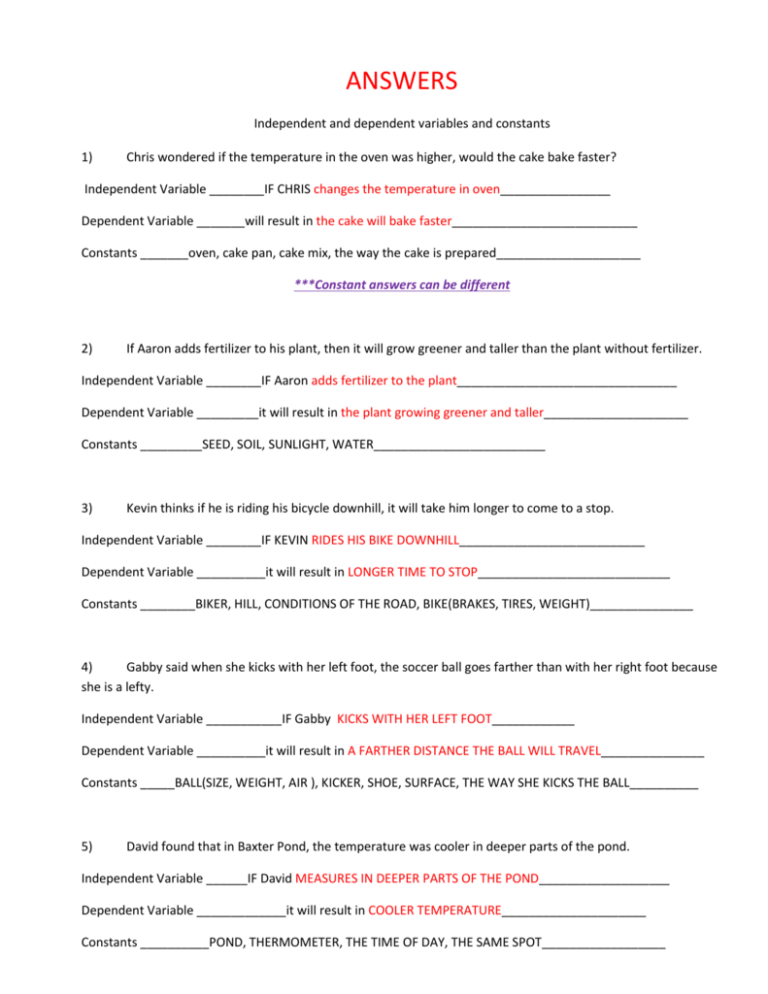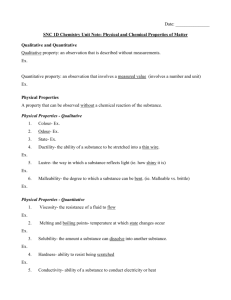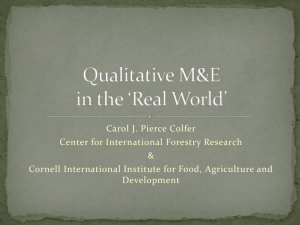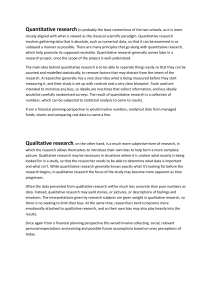independent_and_dependent_variables_practice (1) answers
advertisement

ANSWERS Independent and dependent variables and constants 1) Chris wondered if the temperature in the oven was higher, would the cake bake faster? Independent Variable ________IF CHRIS changes the temperature in oven________________ Dependent Variable _______will result in the cake will bake faster___________________________ Constants _______oven, cake pan, cake mix, the way the cake is prepared_____________________ ***Constant answers can be different 2) If Aaron adds fertilizer to his plant, then it will grow greener and taller than the plant without fertilizer. Independent Variable ________IF Aaron adds fertilizer to the plant________________________________ Dependent Variable _________it will result in the plant growing greener and taller_____________________ Constants _________SEED, SOIL, SUNLIGHT, WATER_________________________ 3) Kevin thinks if he is riding his bicycle downhill, it will take him longer to come to a stop. Independent Variable ________IF KEVIN RIDES HIS BIKE DOWNHILL___________________________ Dependent Variable __________it will result in LONGER TIME TO STOP____________________________ Constants ________BIKER, HILL, CONDITIONS OF THE ROAD, BIKE(BRAKES, TIRES, WEIGHT)_______________ 4) Gabby said when she kicks with her left foot, the soccer ball goes farther than with her right foot because she is a lefty. Independent Variable ___________IF Gabby KICKS WITH HER LEFT FOOT____________ Dependent Variable __________it will result in A FARTHER DISTANCE THE BALL WILL TRAVEL_______________ Constants _____BALL(SIZE, WEIGHT, AIR ), KICKER, SHOE, SURFACE, THE WAY SHE KICKS THE BALL__________ 5) David found that in Baxter Pond, the temperature was cooler in deeper parts of the pond. Independent Variable ______IF David MEASURES IN DEEPER PARTS OF THE POND___________________ Dependent Variable _____________it will result in COOLER TEMPERATURE_____________________ Constants __________POND, THERMOMETER, THE TIME OF DAY, THE SAME SPOT__________________ QUALITATIVE VS. QUANTITATIVE WORK SHEET All of the observations in this worksheet were qualitative; that is, you observed a quality about an object (it smelled good, it was green, etc.). Another type of observation is quantitative, meaning that it can be described or measured in concrete numerical terms. The following observations are quantitative: There are 30 students in my class. I weigh 98 pounds. 1 ate a pound of potatoes. Determine which of the following statements are quantitative and which are qualitative. 1. __Quantitative____ The cup had a mass of 454 grams. 2. __Quantitative____ The temperature outside is 250 C. 3. __Qualitative_____ It is warm outside. 4. __Quantitative____ The tree is 30 feet tall. 5. __Quantitative____ The building has 25 stories. 6. __Qualitative_____ The building is taller than the tree. 7. __Qualitative_____ The sidewalk is long. 8. __Quantitative____ The sidewalk is 100 meters long. 9. __Qualitative_____ The race was over quickly. 10. __Quantitative____ The race was over in 10 minutes. CONSTRUCTING INFERENCES FROM OBSERVATIONS Suppose your friends went to the beach at noon on a warm day. They saw some black and white birds. Which of the following statements are observations and which are inferences? Indicate your answer with either the letter “O” for an observation, or the letter ‘I” for an inference. 1. ____I________ It is summertime. 2. ____O________ It is daytime. 3. ____O________ They saw birds. 4. ____I________ They saw seaguils. 5. ____I________ They went swimming. 6. ____I________ One friend’s name was Bob. 7. ____O________ It was a warm day. 8. ____O________ The birds were black and white. 9. ____I________ They ate lunch and drank Coca-Cola. 10. ____I______ The people are friends.







